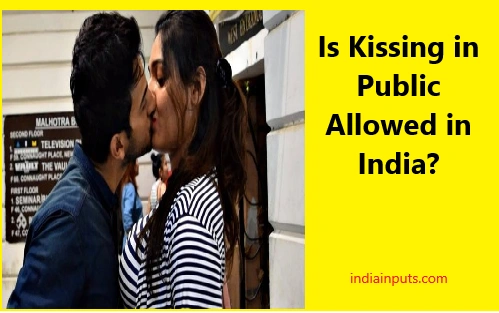Public displays of affection (PDA) like kissing are a contentious topic in India, a country where traditional values and modern sensibilities often clash. While holding hands or exchanging hugs may not raise eyebrows in most urban areas, kissing in public can lead to legal consequences and social judgment.
The Legal Perspective

Kissing in public is not explicitly prohibited by Indian law. However, it can sometimes be interpreted as an offense under Section 294 of the Indian Penal Code (IPC), which criminalizes obscene acts in public places. The section states:
“Whoever, to the annoyance of others, does any obscene act in any public place, shall be punished with imprisonment of up to three months, or with a fine, or with both.”
The ambiguity lies in the interpretation of the term “obscene.” What may be considered obscene in one cultural or regional context might be perfectly acceptable in another. This vagueness often leaves the enforcement of the law to the discretion of police officers and the judiciary.
Cultural and Social Attitudes
India is a land of deep-rooted traditions and cultural values. For centuries, public expressions of affection have been frowned upon, viewed as a private matter meant to be kept behind closed doors. Many people, especially in rural areas, consider acts like kissing in public to be disrespectful to local customs.
In urban India, however, attitudes are gradually shifting. Cities like Mumbai, Delhi, and Bengaluru, influenced by global culture and more liberal mindsets, often witness couples expressing affection openly. Even so, these acts can attract unwanted attention, criticism, or even harassment, particularly in conservative neighborhoods or by vigilante groups claiming to uphold cultural values.
Cases and Controversies
Instances of couples being harassed, fined, or even arrested for kissing in public have sparked widespread debate. In 2007, Bollywood actor Richard Gere faced backlash for kissing actress Shilpa Shetty on stage during a public event, with many calling it obscene. The incident highlighted the stark divide between modern and traditional mindsets in India.
Similarly, in some parts of the country, moral policing by self-proclaimed guardians of culture has led to couples being shamed or attacked. Such incidents raise concerns about individual freedom and the role of the state in regulating personal behavior.
Changing Times and Perspectives
The younger generation, particularly in metropolitan cities, is challenging the stigma surrounding public displays of affection. Social media campaigns, public protests like the “Kiss of Love” movement in Kerala, and the influence of global culture have spurred conversations about personal freedom and the need to shed regressive attitudes.
The Way Forward
While there is no outright ban on kissing in public in India, societal attitudes and inconsistent enforcement of the law create a gray area. For change to occur, a more nuanced understanding of “obscenity” is needed, reflecting India’s growing embrace of modernity while respecting cultural sensitivities.
Conclusion
Kissing in public remains a polarizing topic in India, caught between evolving societal norms and traditional values. While the law provides room for interpretation, the larger challenge lies in reshaping societal attitudes to ensure that personal freedoms are respected without encroaching on cultural sensibilities. In this balancing act, India continues its journey of navigating modernity amidst its rich heritage.

